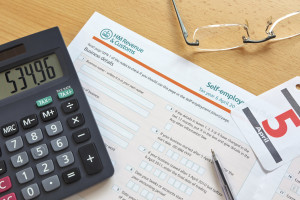All news » How best to manage your Payments to HMRC?
How best to manage your Payments to HMRC?
One problem small business owners frequently face is keeping up with the tax payments to HMRC.
Unlike other suppliers where usually a small delay doesn’t cost you much or any thing in most cases, HMRC late payments can cost you penalties and interests and a lot of stress!
Here’s some quick tips to manage your accounts with HMRC-
Corporation Tax –
If your company is profitable, you know you will have to pay tax every year anyway. And if you have a stable business where year on year profits and sales roughly remain the same, the best thing to do is to make regular monthly payments in advance of your payment deadline.
For example, if last year your corporation tax liability was say £10k and deadline to make the payment was the 1st of October. You should start making £1k a month payment from January. If that’s not ideal for business cash flow, perhaps start making £500 a month and then still you will have a £5k to pay by 1st of October rather than £10k. This way you will be able to spread out the burden of tax payment over number of months.
Note- you will need a payment reference number each year, which is sent by HMRC or you can check on the online system or ask your accountant.
VAT Payments –
The ideal way to ensure VAT payments are not missed out is by setting up Direct Debit. This way once the VAT return is submitted HMRC will collect the money itself and usually you’ll get a couple of extra days as well.
In order to ensure you have enough cash in the business, the best thing to do is separate out 20% of all sales payments you receive and transfer it to another bank account. This way you’ll always have more money in the ‘vat bank’ account than your vat liability for the quarter.
PAYE/NI Payments –
Unfortunately, HMRC doesn’t have a Direct Debit option yet for monthly PAYE/NI payments. The due date for month’s liability is usually the 21st of the following month. An easy way to ensure you don’t forget this payment is set it up when you make the monthly salary payments at the end of each month. Your bank allows you to setup payment scheduled in future date.
It’s better to make payments on the due date for this liability. If you pay a month in advance, it can cause issues with the payment allocation and HMRC may contact to reconcile.
Personal tax liability –
Unlike corporation tax ‘payment reference’, the reference for personal tax payments does Not change every year. Again, if your usual tax liability is e.g. £10k or £40k and you find yourself struggling to pay tax every January in one lump-sum then best to make number of smaller payments over the year as well.
This way you’ll spread the payments over number of months reducing the cash flow burden. Also, it will help in being more organised regarding your tax affairs and avoid HMRC penalties and demand letters.
Get in touch to find out how we can help you
Tagged in: VAT hmrc payments Small Businesses startup VAT payments year-end accounts

